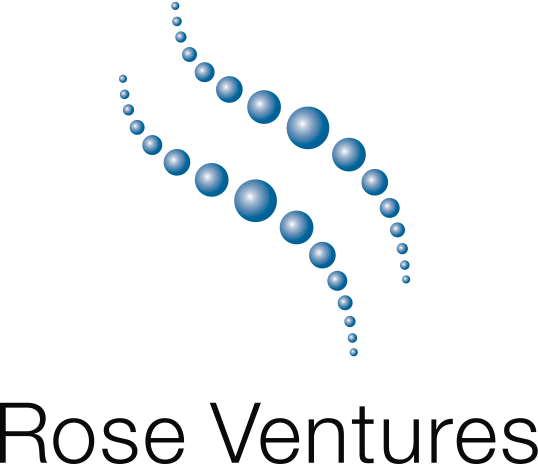Looking Back
As we approach the end of the year a lot of people are slowing down their work activities, preparing for the holiday season, and reflecting back on the past year. I think this is a very healthy practice. In many cases we are reminded of how much we have to be thankful for. We also may be reminded of the challenges and opportunities that we have encountered and tried to address, or those that we know or suspect may lie ahead in the coming year. In this context we are also in a time of year when many people make resolutions for the new year, or set personal goals they aim to achieve.
As I reflect back on 2023, one particularly unique experience I had was writing my first book. It’s a memoir based on my personal experiences as a genomics entrepreneur over the past thirty plus years. My central theme is focused on the impact of what I call “inevitable unexpected events” on a life and a business, and strategies for increasing the likelihood of navigating past these events to successful outcomes. Titled Can’t Tame a Mongoose: Memoir of a Genomics Entrepreneur, the book is scheduled for publication in March, 2024.
I’m guessing that most readers will not understand the meaning of the title at first glance. The story behind that initial phrase is as follows:
“Can’t tame a mongoose.”
—West Indian expression, via Jeff James (2004)
Over a fifteen-year period I regularly took taxi rides between the airport in Charlotte Amalie, in the US Virgin Islands, and the ferry dock in Red Hook. Typically I would drive with Jeff James, a good friend who was born on the island of Dominica. We’d pass the time talking about everything under the sun, from local politics or quirky tourist stories to the Yankees-Braves baseball rivalry to global events. One day I went off on a long rant about a certain politician who continually pushed their agenda regardless of what others said. Without taking his eyes off the windy mountain road, Jeff said, “You know what they say, my friend. Can’t tame a mongoose.”
At first I thought it simply meant that some things are beyond your control, so don’t fret over it and move on. On further reflection, I realized that it could also mean that some people will push relentlessly until they get what they want, with the persistence you see in a mongoose chasing a snake. They can’t be tamed and will try everything possible to achieve their goal. I believe this same kind of persistence is key to success in business. Especially when attempting to navigate past unexpected events, one must focus intensely, think creatively, rely on relationships, leverage any legitimate ethical advantage, and do whatever it takes to achieve a goal.
Both the stories shared as well as the strategies described are necessarily from the past, yet forward looking by nature. Inevitable unexpected events are by definition things that happen in the future, and are encountered with no warning or expectation. Some present as unforeseen challenges to be overcome, and others as unanticipated opportunities one must decide whether or not to address. The strategies, approaches and values described to enhance the likelihood of successfully navigating through these events are intended to help entrepreneurs prepare for those moments of truth when one is confronted with an unforeseen challenge or an unanticipated opportunity.
Over the past year I’ve also had a chance to do a lot of reading. In prior years much more of my reading was related to my work, either in general terms, or more specifically in relation to a field in which a business of mine was engaged. This year a much higher percentage of my reading was for pleasure, although much of it was also in relation to my writing project. One of the most fascinating and thought provoking books I read was Sapiens: A Brief History of Humankind, by Yuval Harari.
During a time when many of us are looking back over the past year, Harari provides a longer term perspective. What’s more, at a time when we are looking forward to the new year, it’s always good to bear in mind George Santayana’s famous quote, “Those who cannot remember the past are condemned to repeat it” (Life of Reason, 1905).
Given that Sapiens is an historical account, it is backward looking in nature. I was thus fascinated by the following quote:
“It is an iron rule of history that what looks inevitable in hindsight was far from obvious at the time. Today is no different. …
Every point in history is a crossroads. A single travelled road leads from the past to the present, but myriad paths fork off into the future. Some of those paths are wider, smoother and better marked, and are thus more likely to be taken, but sometimes history – or the people who make history – takes unexpected turns.”
I couldn’t help but wonder whether the unexpected turns that people have taken were a consequence of encountering life’s inevitable unexpected events. I’m sure at least some of them were. Furthermore, I wonder whether those who “made history” reacted to unexpected events by relying on similar strategies, approaches and values as I’ve presented, whether in the context of business or some other aspect of the human experience. Perhaps that will be the subject of a sequel.
If you haven’t yet read Sapiens then I strongly encourage you to do so. Harari is a truly gifted storyteller who provides some illuminating perspectives on human history, in particular as it relates to the intersection between biology, politics, science and business/capitalism.
Can’t Tame a Mongoose is available for pre-order now. I’ll have more to say about that in the new year. In the meantime, I’d like to thank you for following this blog. I wish everyone happy holidays, and peace and joy in 2024.
